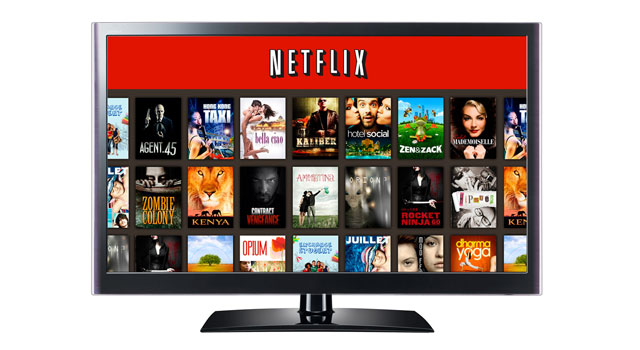
Will Smith’s next movie — part cop flick, part sci-fi — has all the makings of a Hollywood blockbuster except one. When Bright is released later this year it’ll be playing on Netflix’s streaming service, not thousands of cinema screens.
Once an industry outsider, Netflix has emerged as one of the TV industry’s most powerful forces with shows including House of Cards and Stranger Things, earning awards and attracting millions of viewers. Though the Los Gatos, California-based company has released dozens of films in recent years, it hasn’t had the same impact in movies.
Now, the world’s largest paid video service is devoting more attention to motion pictures, looking to shake up that business just as it has TV. Bright, with a US$90m budget, is one of about 30 original films Netflix will release this year, from micro-budget pictures made by independent producers to lavish Hollywood productions. That’s a bigger slate than most major studios.
To succeed, Netflix needs to create pictures that generate the kind of buzz associated with a big-screen hit or an awards contender. That won’t be easy. Major theatres shun Netflix because the company insists that its films be available for streaming from day one. Hollywood studios, while eager to get movies in the home sooner, still vouch for the cinema experience, as do most filmmakers.
For Netflix, which will spend more than $6bn on TV shows and movies this year, the answer is money, talent and volume, as well as almost 100m paying subscribers. The company’s future slate includes War Machine, a comedy featuring Brad Pitt and Oscar winner Tilda Swinton that’s due out in May, and a new film from director Martin Scorsese.
The company is also poised to hire Scott Stuber, producer of Ted and The Break-Up, to shepherd its film ambitions, according to publications including the Hollywood Reporter and Deadline.com. His job will be wrangle top talent and persuade filmmakers to shed their attachment to the cineplex.
“That’s the challenge,’’ said Peter Principato, whose management and production company has worked on TV shows with Netflix. “Most filmmakers get into the business to make films for theatres.”
Netflix introduced audiences to the trailer for Bright in a commercial during last month’s Academy Awards. The same night, Amazon.com won three Oscars, including two for Manchester By the Sea, and host Jimmy Kimmel joked about Amazon CEO Jeff Bezos, who was in the audience. Unlike Netflix, Amazon gives its movies a conventional run in cinemas before they go online. The retail giant even makes presentations at the cinema industry’s annual gathering, CinemaCon, to win friends in the industry.
While Netflix has pursued and won Emmys — the highest award in TV — the Academy Awards are another matter. The company has mounted Oscar campaigns for documentaries without a win, and in 2015 failed to secure a nomination for Beasts of No Nation, an acclaimed drama about an African war lord directed by Cary Jo Fukunaga.
Netflix also bought several movies at the Sundance Film Festival in 2016, the same industry event where Amazon acquired Manchester, yet none earned major nominations.
“Netflix had to pay the pioneer tax,” said Ross Fremer, an executive at Cinetic Media, which provides management and financial services to the film industry. “They said, ‘We have all this money, let’s go win awards and build credibility.’ It upset the balance of power, and it’s a risk for a filmmaker who wants to win an Academy Award.”
Netflix says the scores of films it’s made or backed so far, from Adam Sandler comedies to a Crouching Tiger, Hidden Dragon sequel, have been loved by fans, if not by critics or Oscar voters. The company can point to growing subscriber rolls as evidence its strategy is working, yet admits customers spend far more time watching TV shows than movies.
Smith, Bright director David Ayer and writer Max Landis all took a risk by allying themselves with Netflix. The company has never released a movie with “franchise potential’’ or a big-budget picture with an actor of Smith’s stature.
Yet Netflix is also seen as the future by many in Hollywood. The online network added 19m subscribers globally last year. With House of Cards, the company scored a major hit with its first original show. Viewers binged, stars were born and awards rolled in.
Finding hits will fall to Stuber, a former studio executive with a long track record of commercially successful comedies. His biggest include Ted, Seth MacFarlane’s movie about a foul-mouthed teddy bear, and Identity Thief, starring Melissa McCarthy.
Netflix is also betting Stuber can be a magnet for talent. Amazon has hired executives who possess strong relationships with filmmakers.
Collaborating with Netflix “has been pretty amazing”, said Principato, who’s now working on his first movie with the company, A Futile and Stupid Gesture. The director, David Wain, had no qualms making a movie for the company, though both would like to see the film get some exposure in cinemas.
“I would never rule out Netflix because of the creative freedom they offer,’’ Principato said. — (c) 2017 Bloomberg LP



